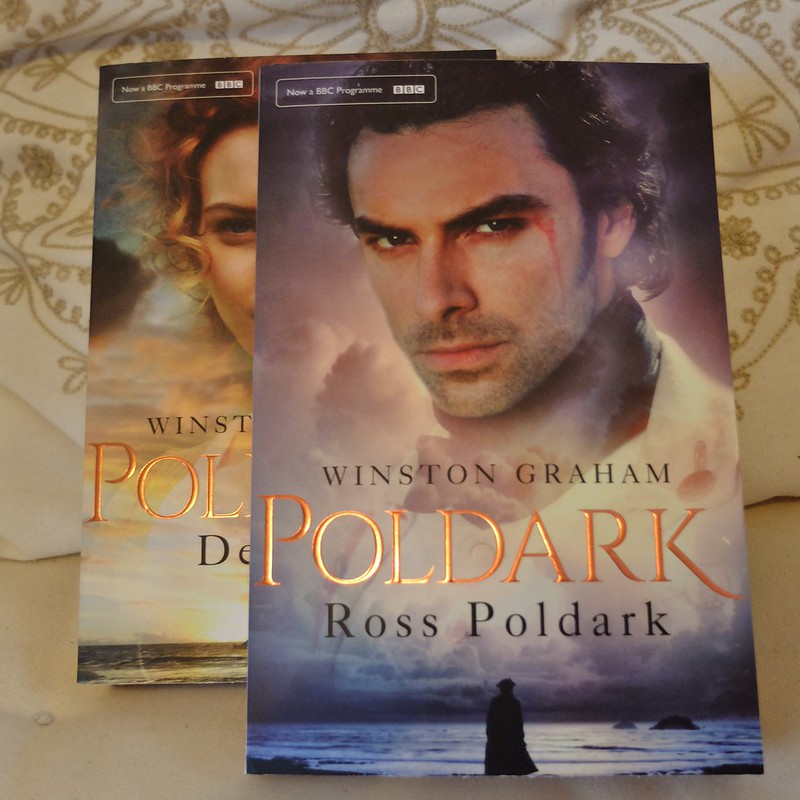
The first Poldark novel, 'Ross Poldark' was written by Winston Graham back in 1945 and was followed with 'Demelza' the following year. Set in Cornwall in the late 18th century, the novels are a master study of social class and family ties set against a backdrop of an industrial revolution. The first two books in the series have been reissued with the latest TV series stars on the covers.
The books are complex, with many different story arcs interweaving, so I found that I was engaged on a few levels. I wanted to find out what would happen to certain characters, but I was also following the changing political scene, and gaining an understanding of the context of Britain as it was in the aftermath of a failed war in America. The storyline also reflects the social change that was occurring at the time in which the book was written, in the wake of WWII. For a book written back in the 1940s and set in the 1780s, it's remarkably topical reading, with lots about untrustworthy bankers and poor people pushed to breaking point by a system that favours and values the rich. It's quite a skill for a book to have relevance to three distinct time periods, and not be dusty - which it is far from. It has some of the romantic excitement of a Georgette Heyer novel (with less heaving bosoms) but there's also a tad more darkness and hardship in the books than we see on the TV adaptation, with a few more attempted murders and child labourers thrown in.
Graham writes well, with the majority of repartees and one-liners that we heard on screen having been written by him originally, with the BBC adding in a few more in keeping with the style. The characters are particularly well drafted, and I found them very real, and if not always likeable then appealing in some other way. It has a couple of key female characters, and I was surprised at how feminist some of the depictions were. Of course, Graham doesn't keep anything static, so while Ross is ostensibly the 'hero' from the outset and stands up for injustice, he then goes and helps a murderer to escape because the woman turned out to be a Jezebel, and obviously it was her fault then. I believe that in future books his attitudes towards women take a few nasty and surprising turns, but I haven't read that far ahead yet to confirm it.
Meticulously researched, this is historical fiction at its best. If you're a Hitchcock fan, you might have spotted that Graham also wrote Marnie. Seems he had a knack for writing books that worked well on screen too.
Poldark is published by Pan Macmillan and the books are out now. I was sent the first two books for review. Opinions are my own.

I'd like to read them. My Mum loved them and named my sister Clowance after one of the characters in them. I ended up with a cornish name too though not a Poldark name. X
ReplyDeleteThese sound good... and as I haven't started watching the tv series (I know, what planet am I on as a young female?!) I may just get into them one day. Because there's nothing I hate more than reading something where I know what's going to happen! Same reason I'm holding off on Jonathan Strange... xx
ReplyDeleteThat sounds like a riveting series (book and show alike). I don't believe I'd caught word of either, but will be looking into what I can find here right away. With Mad Men concluding this month, I need a new historical drama fix big time! :)
ReplyDelete♥ Jessica
I've loved these books for years. As for dodgy attitudes towards women, it'd be worse if the hero was some sort of anachronistic modern man in a world of 18th century types. No-one's perfect, not even Ross.
ReplyDelete